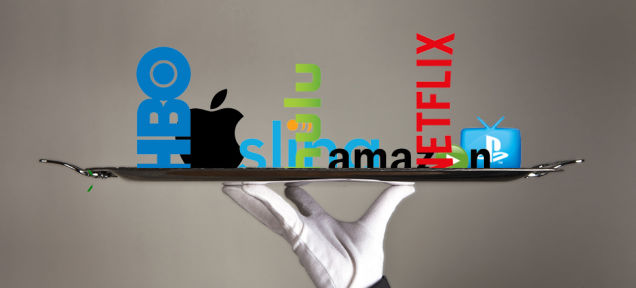In the next five years, more than 50 per cent of the world’s population will have internet access, and 80 per cent of internet traffic will be devoted to video, says a new study by Cisco. But it’s not just billions more dinky YouTube videos that will suck up all that bandwidth. It’s our shifting TV habits.
The number of online videos and and the size of those videos is ditching the traditional cable package and turning to our internet-enabled devices to watch television. What’s more, we’ll increasingly be streaming really big video files, like the high-quality 4K video needed to play on HD monitors. By 2019, 30 per cent of internet-connected TVs are expected to be 4K.
“The cord-cutting household [consumes] more than twice as much data per month as non-cord-cutters,” Cisco exec Robert Pepper tells the Washington Post.
In other words, cord-cutters aren’t only going to change the business of television, they’re also going to dramatically change the amount of internet that we need. Consider this: Global IP traffic is five times as big as it was five years ago, and will triple threefold over the next five years. Next year, worldwide IP traffic will reach 1.1 zettabytes per year (1 zettabyte is 1000 exabytes; one exabyte is one billion gigabytes). That number will go up to two zettabytes in 2019.
We’ve already heard about two potential problems here: We might run out of IP addresses and our internet infrastructure might not be able to handle all that data.
Even though the amount of internet data going to mobile devices won’t match the torrents (I mean literally, torrents) of video flowing to HD monitors, these numbers will dramatically change, too. By 2019, traffic from wireless and mobile devices will exceed traffic from wired devices, accounting for two-thirds of all traffic. Right now, wifi/mobile represent 54 per cent. And get this: The number of devices connected to IP networks will be three times the global population in 2019. This figure seems the most incredible to me. Three devices for every person on Earth! Right now there are only two networked devices per capita.
This all really puts yesterday’s Charter-TimeWarner merger in perspective. Cable company, internet company — whatever. It won’t matter much within a half-decade. It will all be one big pipe.
